The fact that the ministerial conspiracy against liberty had risen from corruption was of the utmost importance to the colonists.
BERNARD BAILYNEmerging first in the form of denunciations of standing armies in the reign of William III, left an indelible imprint on the “country” mind everywhere in the English-speaking world.
More Bernard Bailyn Quotes
-





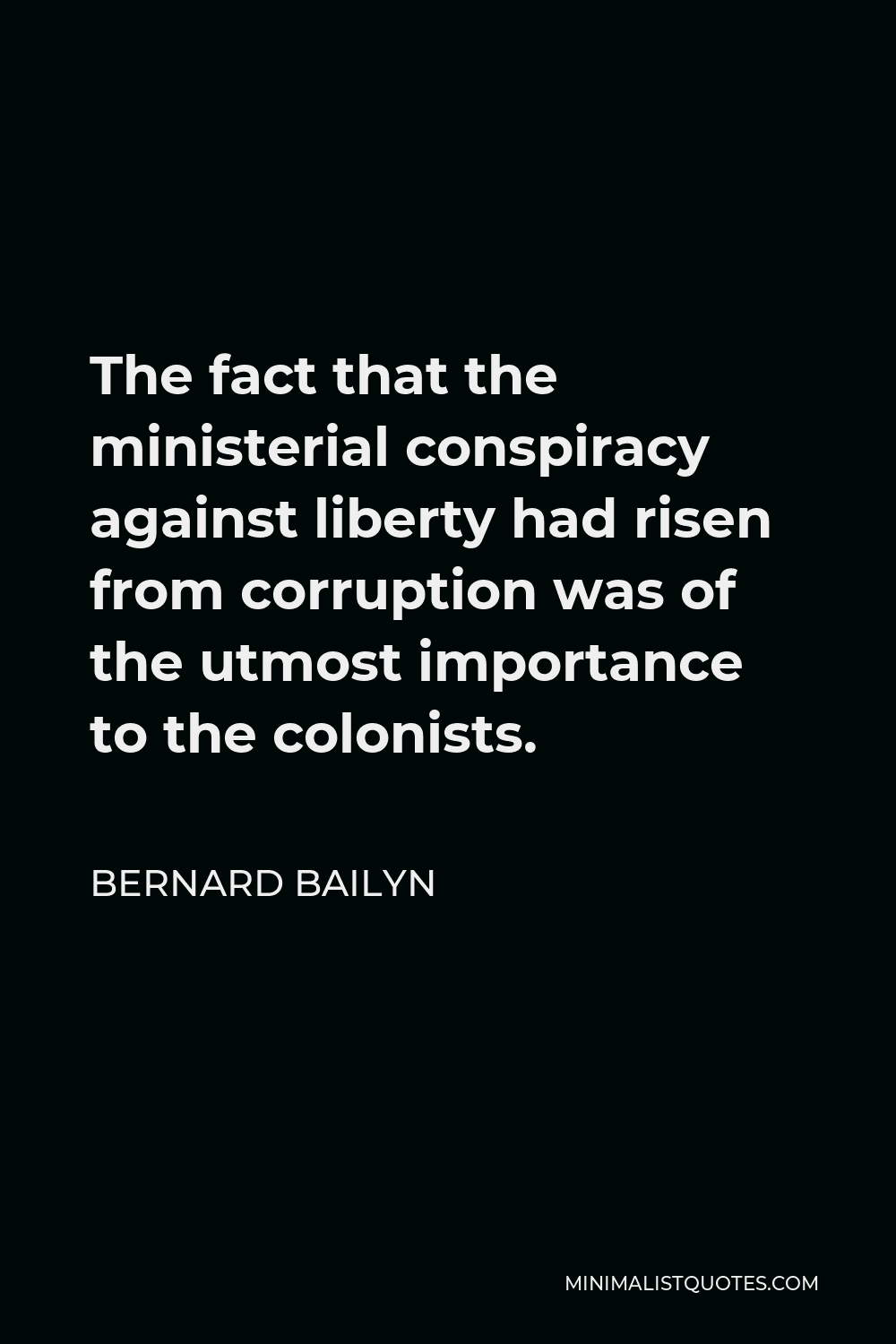
-





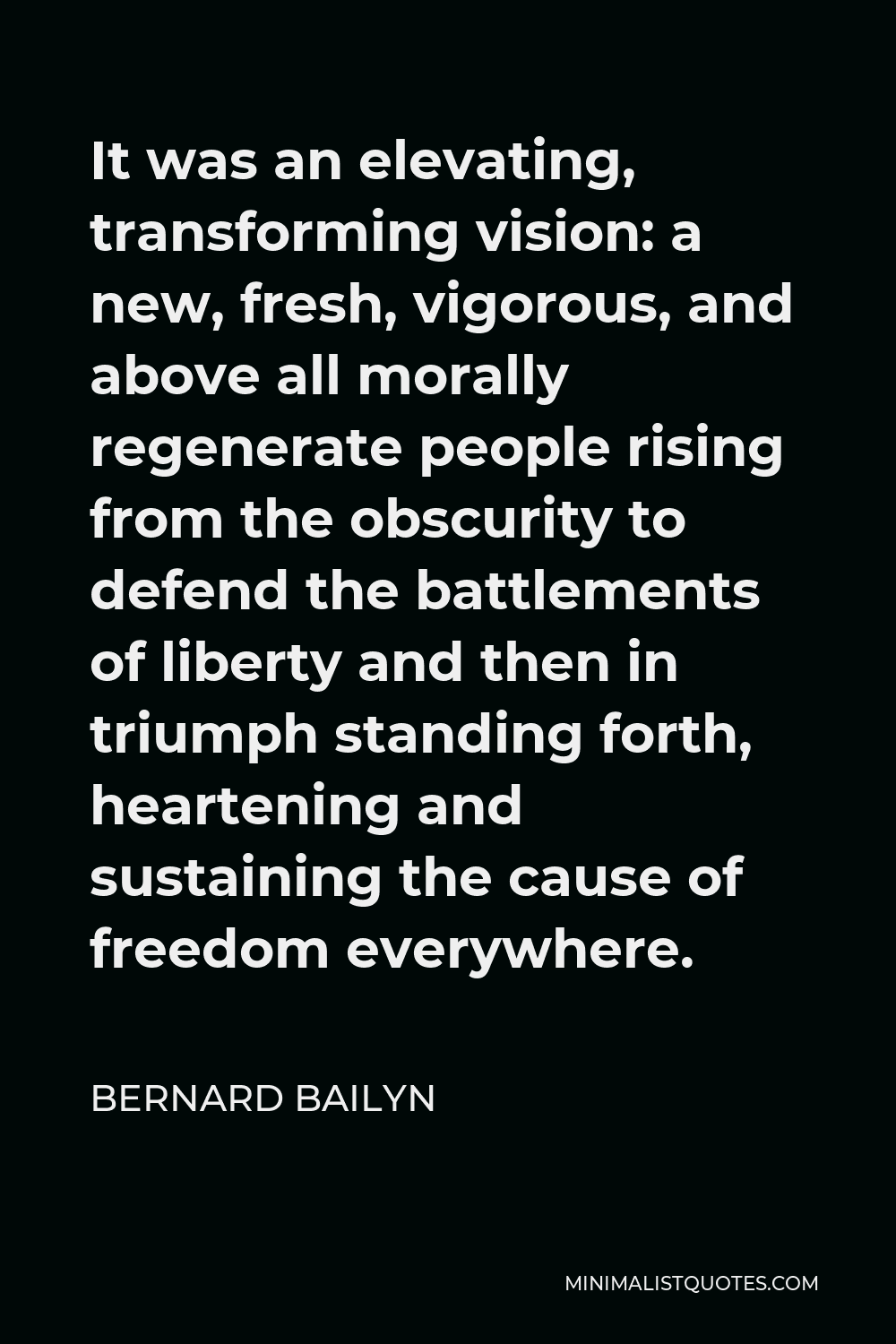
It was an elevating, transforming vision: a new, fresh, vigorous, and above all morally regenerate people rising from the obscurity to defend the battlements of liberty and then in triumph standing forth, heartening and sustaining the cause of freedom everywhere.
BERNARD BAILYN -






Instantly available without continuous presence is probably the best role a mother can play.
BERNARD BAILYN -





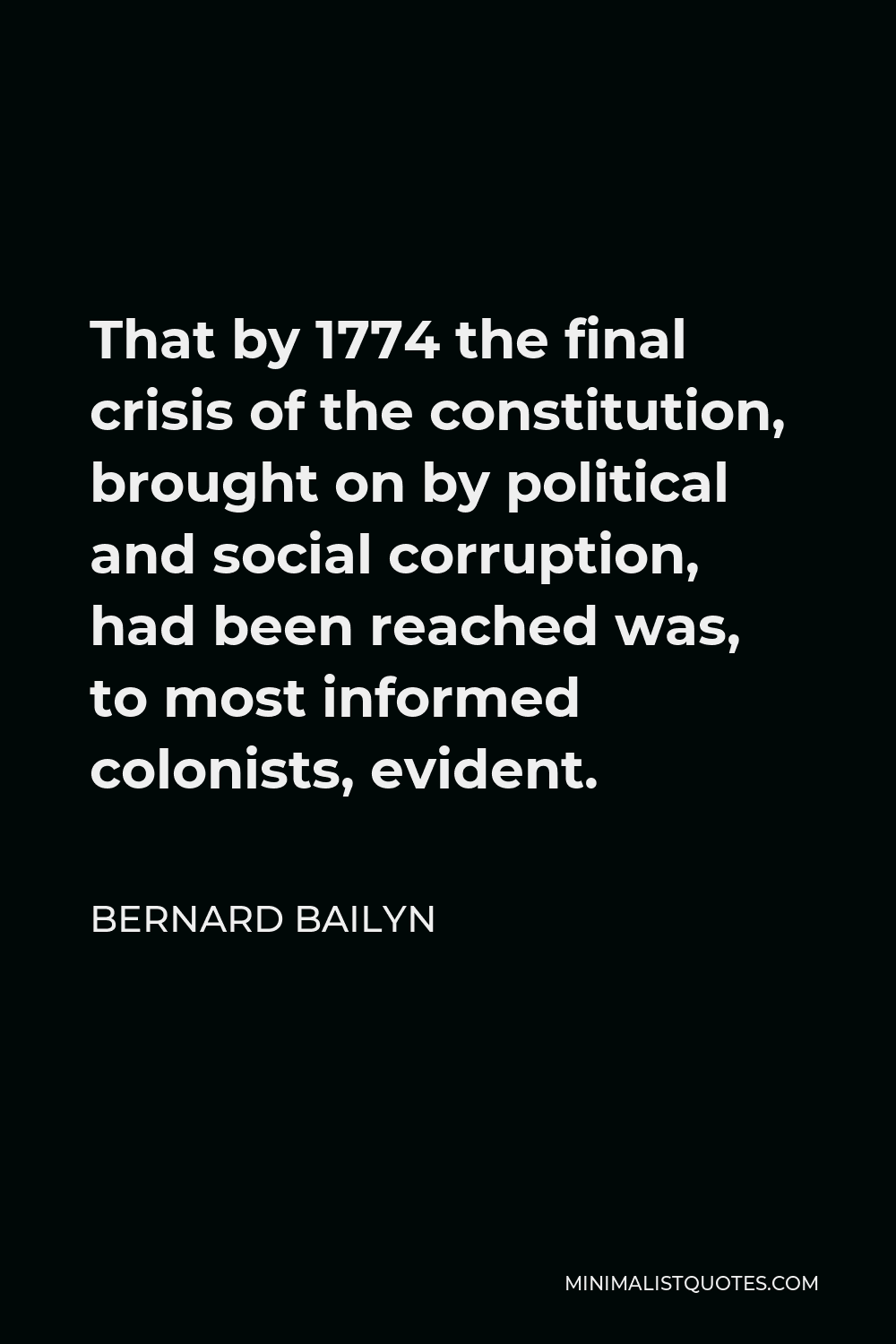
That by 1774 the final crisis of the constitution, brought on by political and social corruption, had been reached was, to most informed colonists, evident.
BERNARD BAILYN -






At first the relevance of chattel slavery to libertarian ideals was noted only in individual passages of isolated pamphlets.
BERNARD BAILYN -






The categories within which the colonists thought about the social foundations of politics were inheritances from classical antiquity, reshaped by seventeenth century English thought.
BERNARD BAILYN -





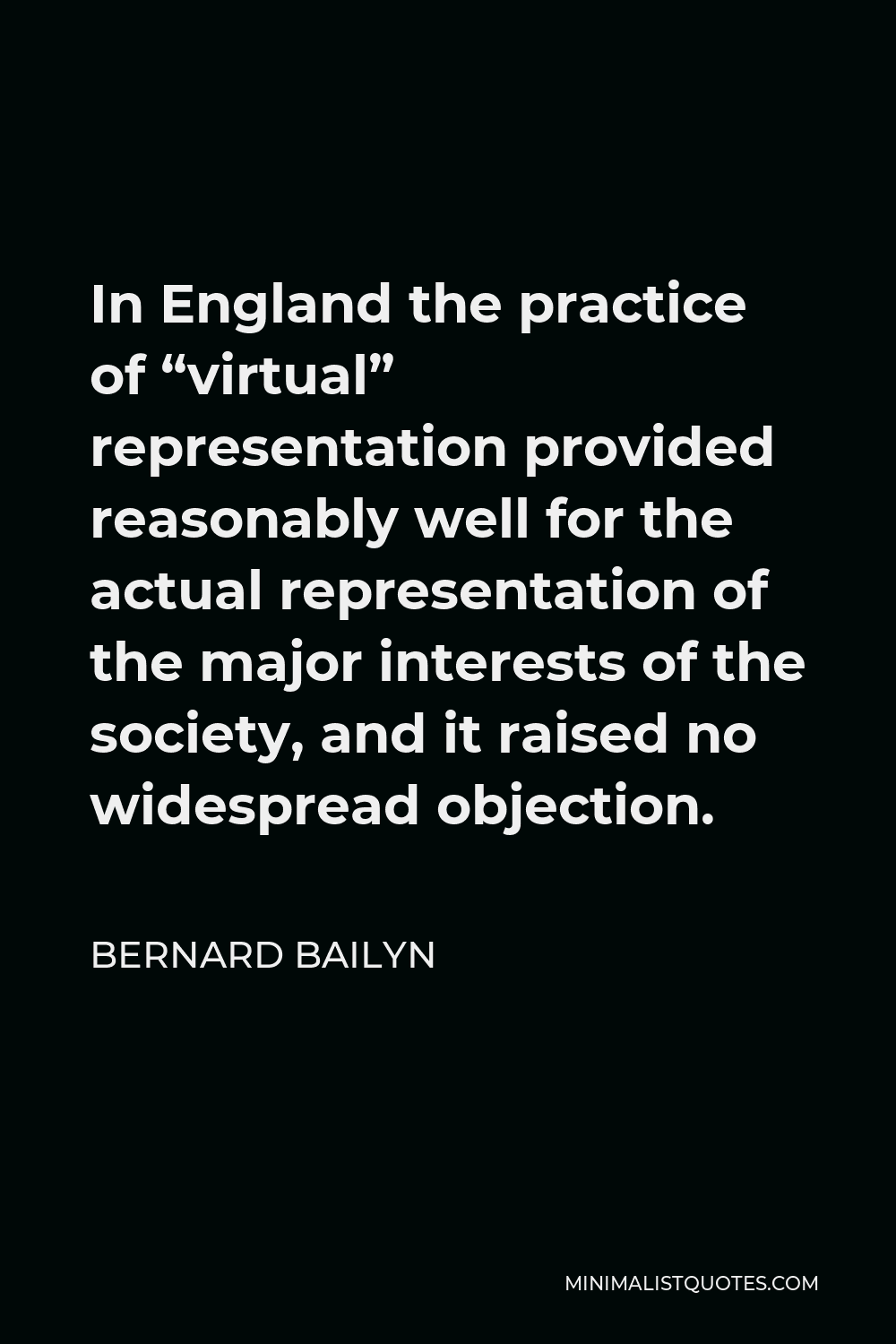
In England the practice of “virtual” representation provided reasonably well for the actual representation of the major interests of the society, and it raised no widespread objection.
BERNARD BAILYN -





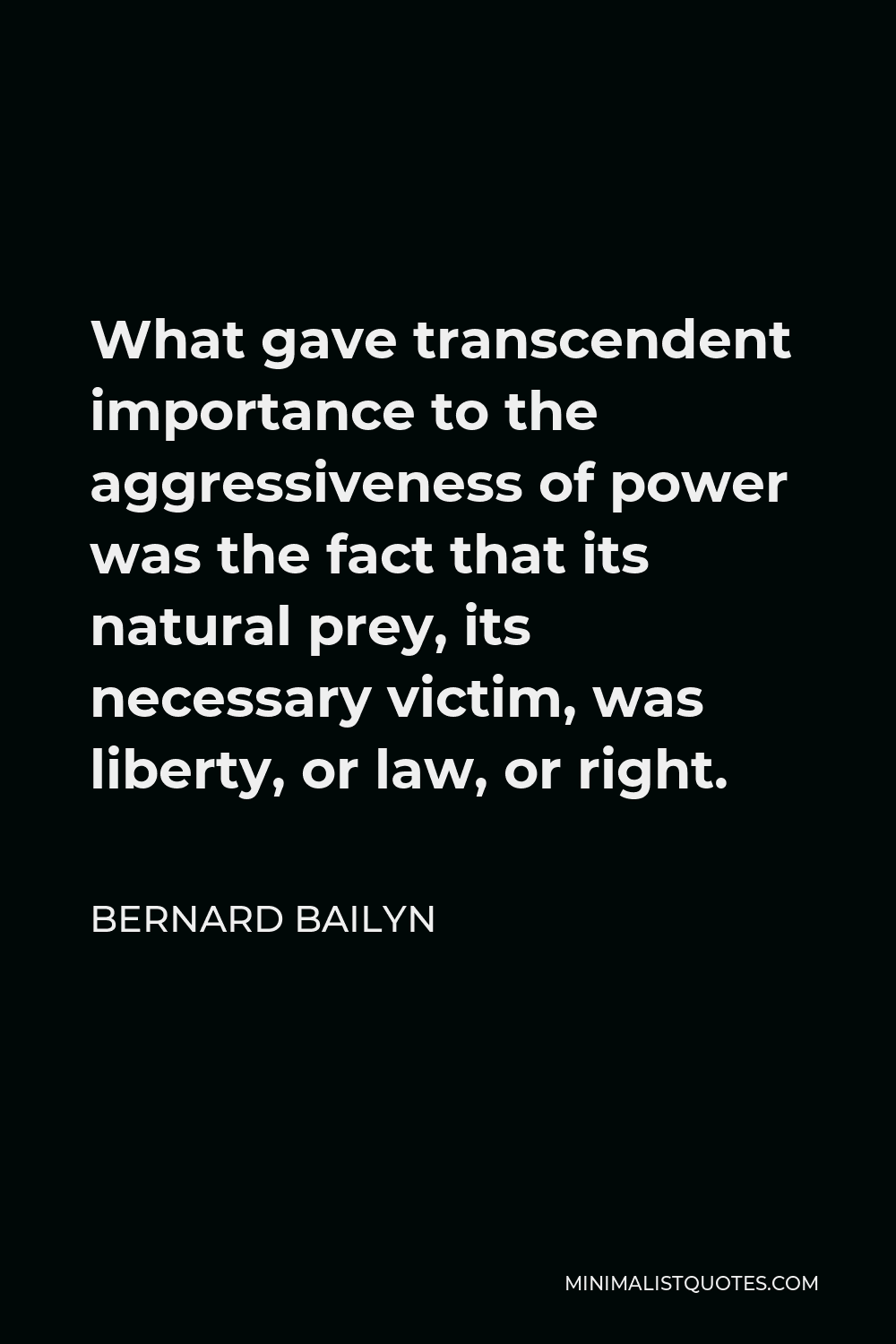
What gave transcendent importance to the aggressiveness of power was the fact that its natural prey, its necessary victim, was liberty, or law, or right.
BERNARD BAILYN -





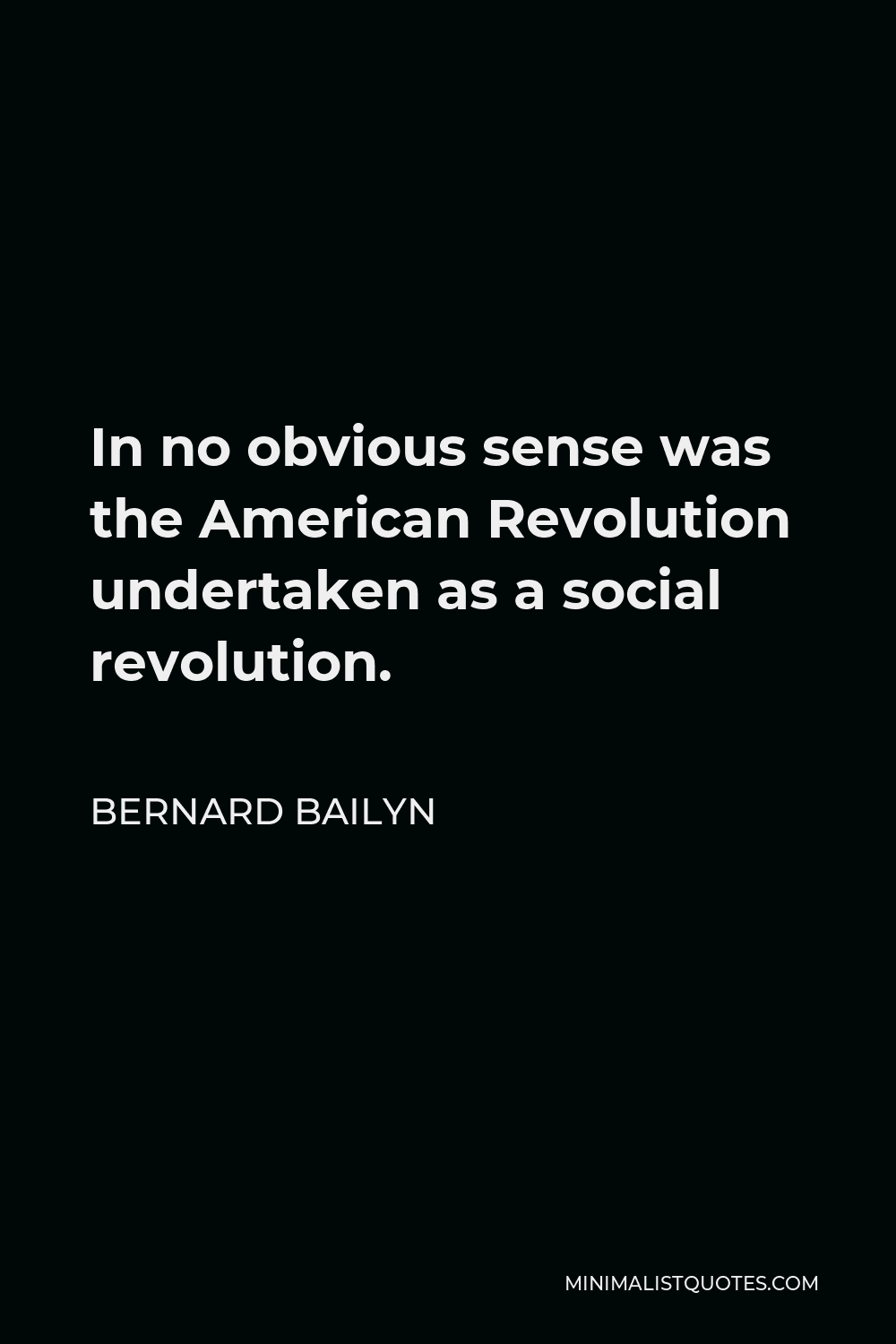
In no obvious sense was the American Revolution undertaken as a social revolution.
BERNARD BAILYN -






Incorporating in their colorful, slashing, superbly readable pages, the major themes of the “left” opposition under Walpole, these libertarian tracts.
BERNARD BAILYN -






Never had Parliament or the crown, or both together, operated in actuality as theory indicated sovereign powers should.
BERNARD BAILYN -





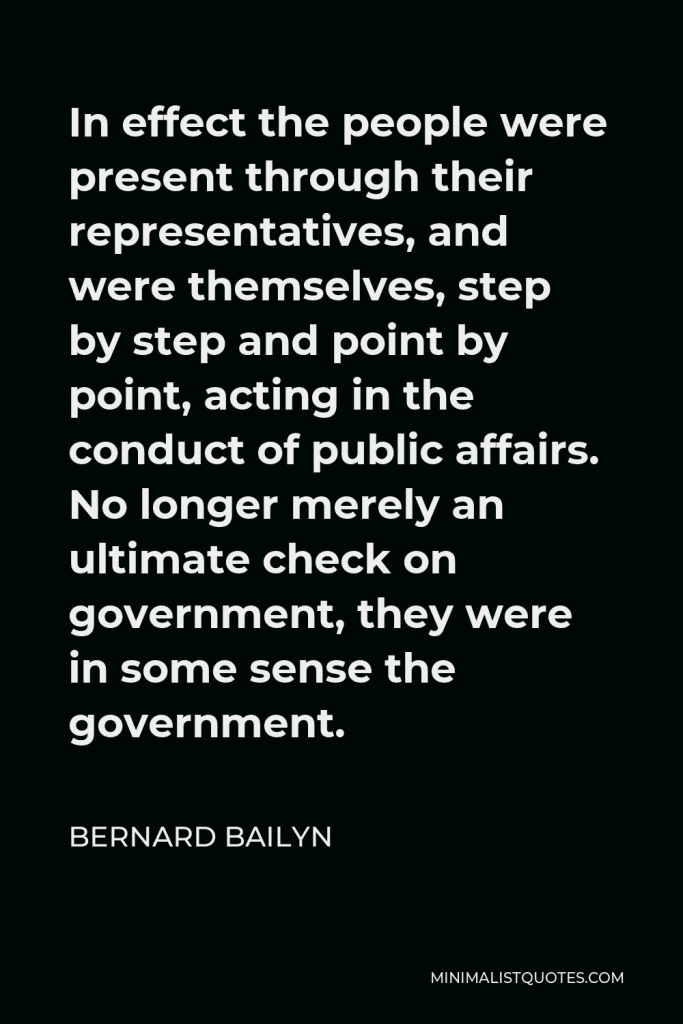

In effect the people were present through their representatives, and were themselves, step by step and point by point, acting in the conduct of public affairs. No longer merely an ultimate check on government, they were in some sense the government.
BERNARD BAILYN -






Emerging first in the form of denunciations of standing armies in the reign of William III, left an indelible imprint on the “country” mind everywhere in the English-speaking world.
BERNARD BAILYN -






The classics of the ancient world are everywhere in the literature of the Revolution, but thet are everywhere illustrative, not determinative, of thought
BERNARD BAILYN -






Whatever deficiencies the leaders of the American Revolution may have had, reticence, fortunately, was not one of them.
BERNARD BAILYN -






The full bibliography of pamphlets relating to the Anglo-American struggle published in the colonies through the year 1776 contains not a dozen or so items but over four hundred.
BERNARD BAILYN






